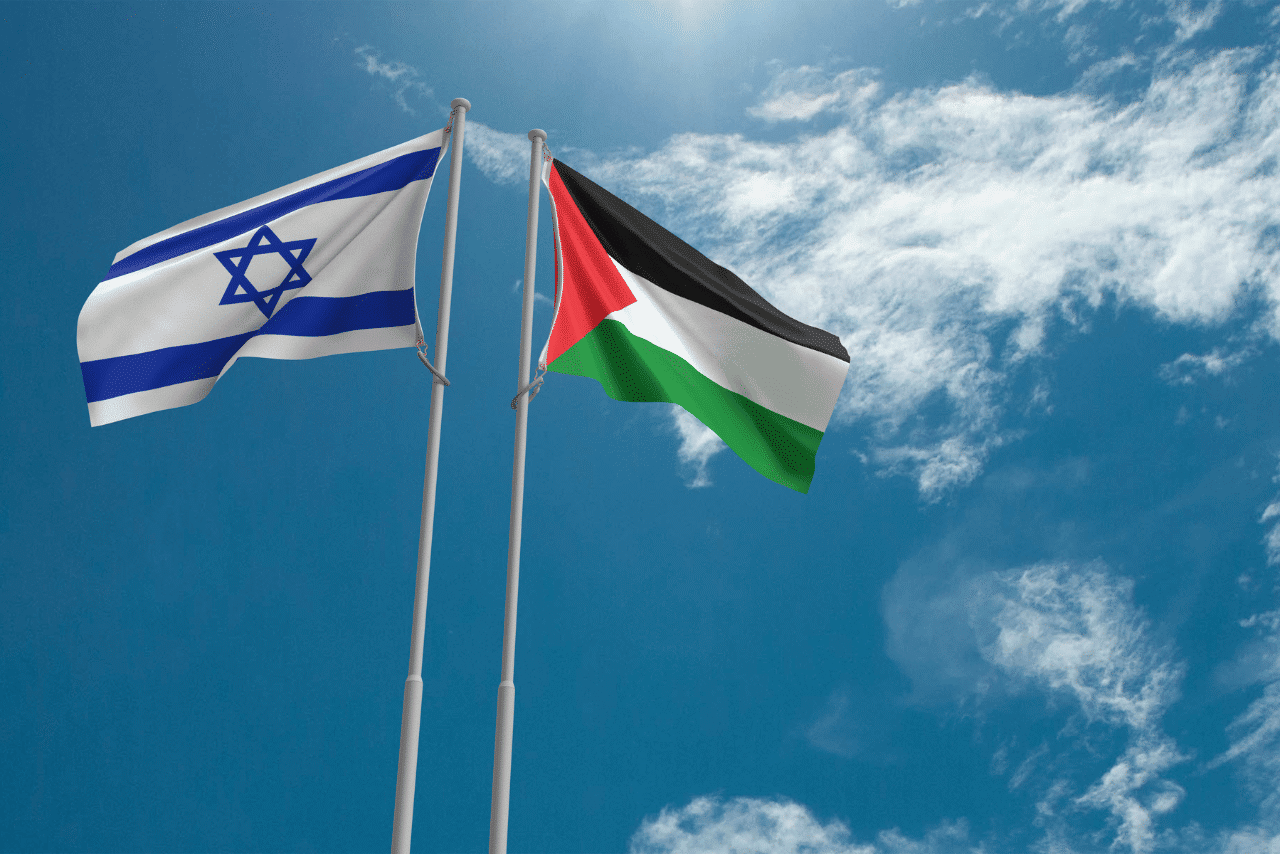
Humanity Amidst Conflict: What Your Colleagues Want You to Know about the Israel-Hamas Conflict
today2023.10.23.

WHY SHOULD YOU CARE
In today’s increasingly diverse and interconnected workplace, understanding and supporting colleagues affected by global events is paramount. In this article we explore how to navigate these challenging conversations, promote empathy, and foster a more inclusive work environment. Explore the shared humanity beneath the headlines and learn how to be a pillar of support in times of crisis.
In a recent Forbes article written by Rebekah Bastian, contributors shared their thoughts on the Israel-Hamas conflict and offered insights into how to support colleagues impacted by the ongoing crisis.
This article aims to provide HR professionals and CHROs with a summarized perspective on what individuals from various backgrounds, including Jewish, Palestinian, and Muslim professionals, have to say regarding the situation.
The Complex Reality:
The conflict between Israel and Hamas has far-reaching consequences, impacting not only the lives of those directly involved but also resonating with Israeli, Palestinian, Jewish, and Muslim individuals worldwide. In the face of the complex history and ongoing violence, the perspectives and commentary have become increasingly polarized.
HR leaders can play a significant role in educating leaders, and fostering empathy and support for affected colleagues. Understanding the diversity of emotions and preferred forms of support is key to creating an inclusive workplace.
Insights from Diverse Voices:
Stephanie Nadi Olson, Founder of We Are Rosie, shared the experience of a Palestinian who has often faced discrimination when openly embracing her heritage. She emphasized the need to demand a stop to Palestinian genocide funded by the U.S. government and called for empathy towards Jewish friends who are also living in fear. “Please check on your colleagues, even if you don’t know what to say. If nothing else, say ‘I see you in your suffering.’ Remind them that you see them as human, and give them the grace they deserve as they watch their world fall apart in real-time while trying to work.”.
“Please check on your colleagues, even if you don’t know what to say. If nothing else, say ‘I see you in your suffering.’ Remind them that you see them as human, and give them the grace they deserve as they watch their world fall apart in real-time while trying to work.”
David Siegel, CEO of Meetup, highlighted the power of personal connections. He stated that receiving calls and notes means a great deal, especially when they come from colleagues and friends from diverse backgrounds.
Ahmed Al Qutaini, an MPA student at Columbia University, urged individuals to advocate for peace, embrace each other’s challenges, and seek understanding. He emphasized the importance of educating future generations about the pain experienced on all sides. “As a Muslim, my heart aches to witness the brutal actions of Hamas, and I hold a sincere hope that the Israeli response won’t add to the spiral of hatred that has been burdening us all.”- he added. “Now, more than ever, we must advocate for peace, embrace each other’s challenges, and seek understanding.” Together, we can weave a tapestry of peace from the shared threads of our pain and our collective hopes to build a world worthy of our dreams and the aspirations of generations yet to come.”
Suzanne Muchin, from the Kellogg School of Management and Co-Founder of Bonfire Women, Inc., underlined the impact of the layered experience when addressing complex issues like the Israel-Hamas conflict. ““When something as horrific as the Hamas attack on innocent Jews feels too complicated for universal condemnation, or worse, inspires even more hatred, then we suffer not only the attack itself but also the response to the attack.” – she commented.
Linda Alnadi-Bathich, an Investment Banking Vice President, encouraged listening with compassion and understanding that individuals do not necessarily align with the policies of their governments. She added: “The situation in Israel and Palestine is disheartening for many people — Muslims, Jews, Israelis, Palestinians, and Arabs. We condemn the killing of innocent Israeli civilians and the brutal measures that the Israeli government has taken against Palestinians. As the media amplifies the calls for war against a densely populated civilian city, let’s not allow the dehumanization of Palestinians which only serves to pave the way for a lingering tragedy.”
Hilary Reiter Azzaretti, a professional in marketing and PR, called for unity by being anti-terrorism and pro-humanity while focusing on a peaceful, permanent outcome. As she put it: “As a Jewish American, I’m disheartened to see people declaring to be pro-Palestinian or pro-Israeli, which I believe perpetuates the divisiveness.”
Shahnawaz Sadique, the Editor and Founder of theviralpink.com, urged open conversations, asking questions, and refraining from generalized assumptions or statements about the conflict. “You can support us by giving us space to process the current events, engaging in open conversations, asking questions and listening to our perspectives (…) In these trying times, your empathy and understanding mean a lot to us.”
Sarah Simon, a travel blogger, highlighted the importance of acknowledging the human lives affected by the conflict and expressed the need for people to take a stand against violence.
A Call for Meaningful Conversations:
Each perspective showcased a unique response to the Israel-Hamas conflict, emphasizing the importance of acknowledging the shared humanity underlying the headlines. For HR professionals and CHROs, this serves as a reminder of the need for meaningful conversations in the workplace. Leading with compassion, curiosity, and solidarity is crucial, especially when it comes to supporting colleagues whose lives have been deeply impacted by these ongoing events.
These insights from Forbes contributors reflect the multifaceted nature of the Israel-Hamas conflict and the significance of promoting understanding and empathy in the workplace. By fostering an environment of open dialogue and support, HR professionals and CHROs can play a pivotal role in helping employees navigate challenging times.
Source: Forbes, “What Your Jewish And Palestinian Friends And Co-Workers Want You To Know” by Rebekah Bastian, Contributor

Written by: Mihaly Nagy
Culture DEI Employee Engagement Employee Experience Inclusion & Diversity Leadership
Previous post

labelArticles today2023.10.19.
Unlocking Talent’s True Potential: A Novel Approach to Employee Value Proposition
WHY SHOULD YOU CARE? In a world where the talent market is fiercely competitive and the “Great Resignation” looms, attracting and retaining the right employees has become a paramount challenge. [...]
Similar posts

labelArticles today2024.07.24.
AI-Powered HR: Strategic Benefits and Practical Applications

labelArticles today2024.06.24.








Post comments (0)